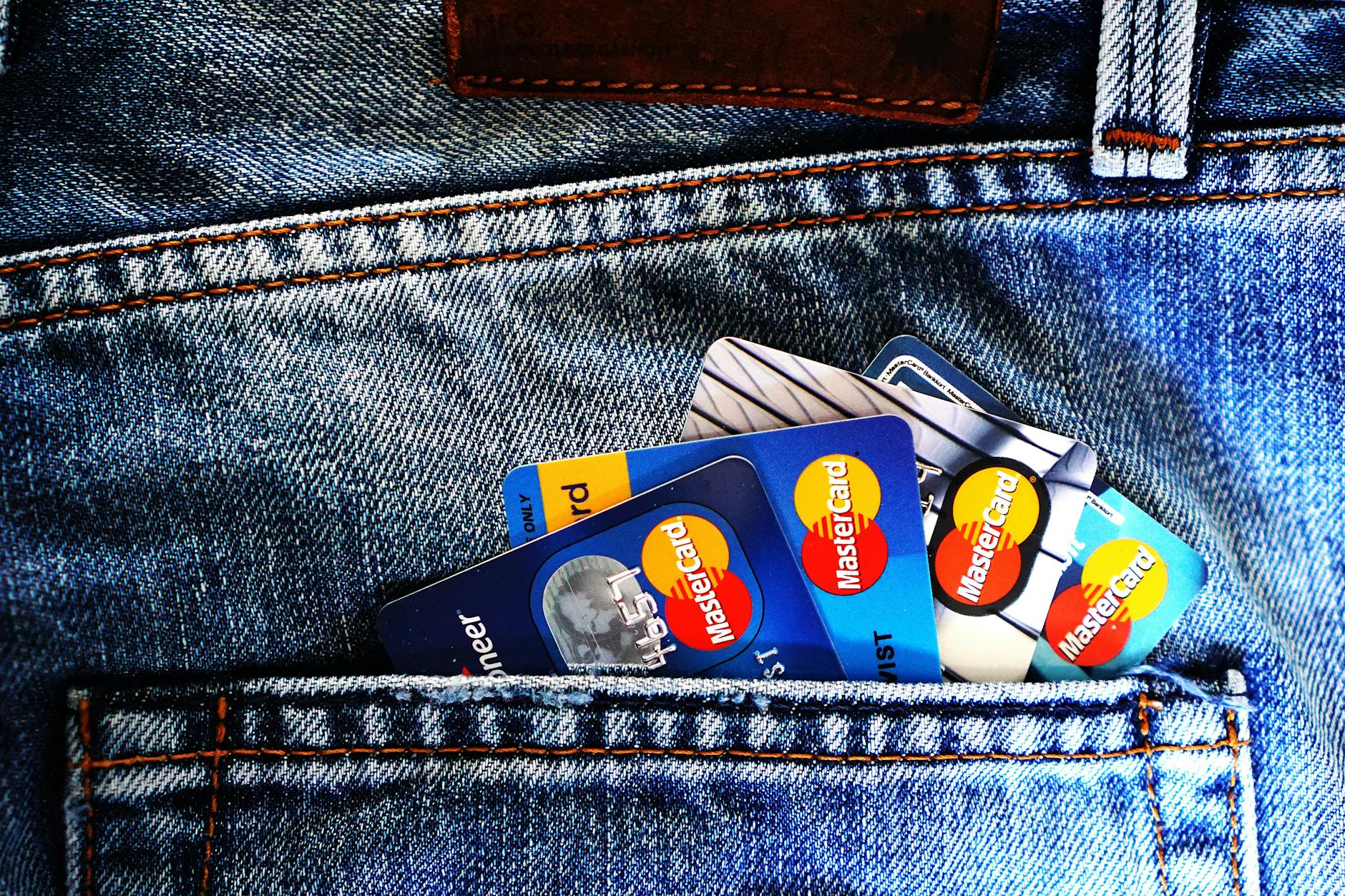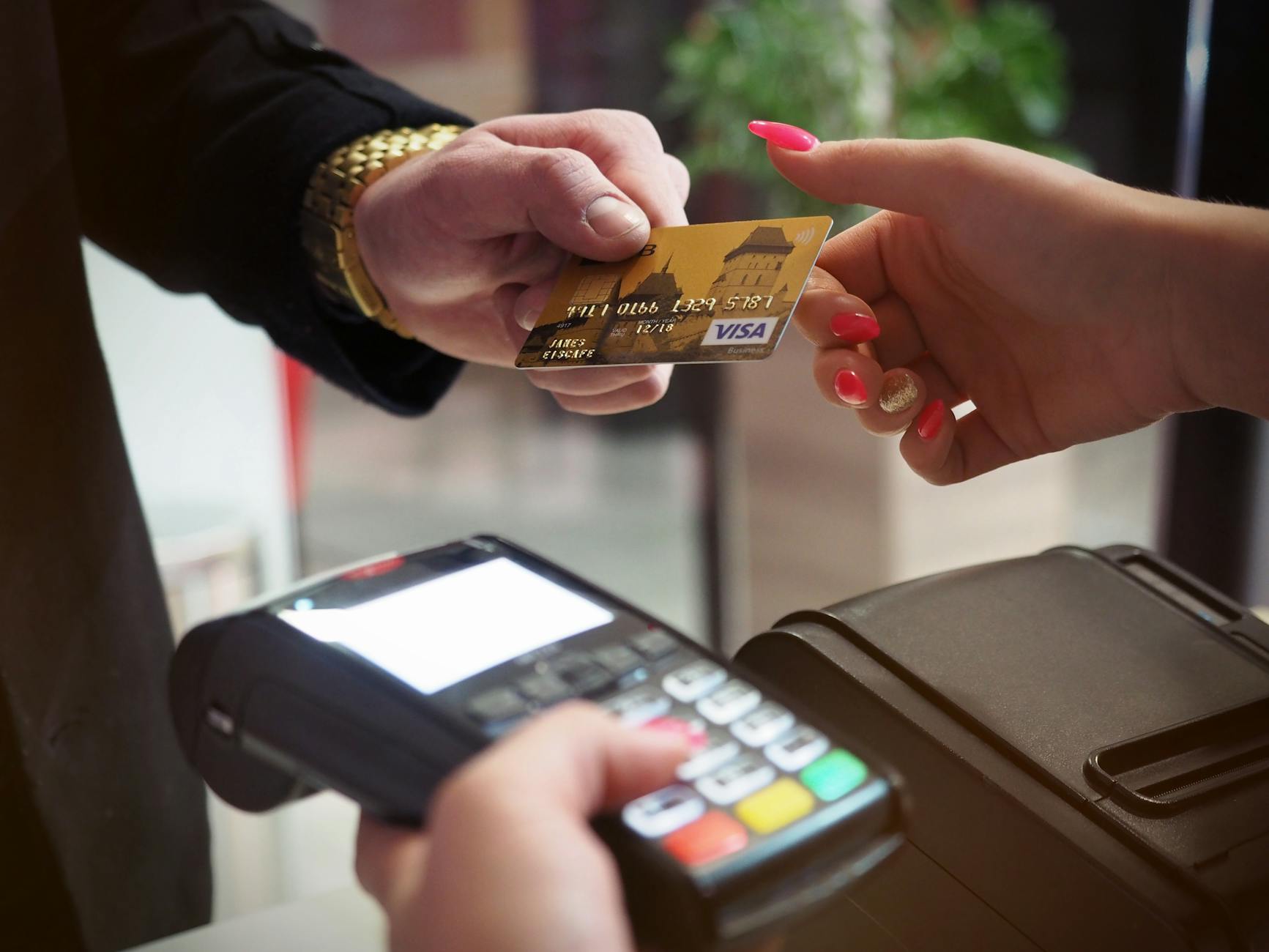Tips for Managing Multiple Credit Cards Like a Pro [2024 Guide]
Tips for Managing Multiple Credit Cards Like a Pro [2024 Guide]
Managing multiple credit cards has become increasingly common, especially as consumers seek to maximize rewards and benefits. While having several cards can be advantageous, it also presents challenges that require careful attention. If you don't manage them well, it can easily lead to missed payments and mounting debt.
This post aims to provide practical tips for effectively handling multiple credit cards without stress. You'll learn about essential strategies that can help you track deadlines, manage spending, and avoid unnecessary fees. By applying these tips, you can take control of your finances and enjoy the perks of credit cards without the headaches.
With the right approach, managing multiple cards doesn't have to feel overwhelming. Let’s dive into the actionable advice you need to manage your credit cards like a pro and make the most of your financial tools.
For more insights, check out this YouTube video on managing multiple credit cards.
Understanding Your Credit Cards
Understanding your credit card options is essential when managing multiple accounts. Each type of credit card serves a different purpose that can work to your advantage. Here are the main categories you should consider:
Types of Credit Cards
Different credit cards come with unique features and benefits. Here's a quick overview:
-
Rewards Cards: These cards allow you to earn points or miles for every purchase. You can redeem these rewards for things like travel, merchandise, and more. They’re ideal for those who spend consistently in certain categories.
-
Cash Back Cards: Cash back cards give you a percentage of your purchases back. Some offer higher cash back rates in specific categories like groceries or gas. This is perfect for everyday spenders who want immediate financial benefits.
-
Balance Transfer Cards: These allow you to transfer existing debt from other cards, usually at lower interest rates for an introductory period. This is useful for those looking to manage credit card debt more effectively. For more info on balance transfer cards, check out this link.
-
Travel Cards: Designed for frequent travelers, these cards typically offer benefits like free flights or hotel stays in exchange for your purchases. Some may come with perks like no foreign transaction fees, making them perfect for global adventures.
Interest Rates and Fees
Each credit card brings different interest rates and associated fees. Knowing these can save you money down the line.
-
Annual Percentage Rate (APR): This is the yearly interest rate you will face if you carry a balance. It's crucial to check current rates as they can vary widely. You can read more about current rates here.
-
Annual Fees: Some cards come with a yearly fee that may feel steep, but consider the benefits. If your card offers excellent rewards that exceed the cost, it might be worth it.
-
Other Fees: Watch out for late payment fees, balance transfer fees, and cash advance fees. These can add up quickly if you aren’t careful. Make sure to always read the fine print.
Credit Limits and Utilization
Understanding your credit limit and maintaining low utilization is key to financial health.
-
Credit Limits: This is the maximum amount you can borrow on your credit card. It’s essential to be aware of these limits to avoid overspending.
-
Credit Utilization Ratio: This ratio measures how much credit you're using versus what you have available. Ideally, it should remain below 30%. Higher usage can impact your credit score negatively. For more details on calculating this ratio, visit this guide.
Managing multiple credit cards effectively hinges on fully understanding each type. A solid grip on interest rates, fees, and your credit limits can help you make informed decisions for better financial management.

Photo by Tara Winstead
Organizing Your Credit Cards
Managing multiple credit cards requires a system that keeps your information organized. Here are practical strategies to help you maintain order and stay on top of your finances.
Setting Up a Filing System
Creating a filing system for your credit cards can simplify your management process. This can be done physically or digitally.
-
Physical Filing System: Use a dedicated folder or binder to store card details, statements, and important information. You might consider color-coding different categories, like rewards or cash back cards, to make it visually clear. This way, whenever you need information, you can locate it swiftly.
-
Digital Filing System: If you prefer digital organization, consider creating a structured system on your computer or using cloud storage. You can categorize documents by card type or purpose. Important files can also be encrypted for security. Furthermore, apps like Evernote are great for organizing notes and receipts related to your cards.
A clear filing system provides quick access and reduces the chances of lost documents.
Using Budgeting Tools
Budgeting tools play a crucial role in managing expenses across multiple cards. These applications can help you track spending and keep limits in check.
-
YNAB (You Need a Budget): This app encourages users to assign every dollar a job, allowing you to budget effectively across various cards. It syncs up with your financial accounts and provides reports to help you understand your spending patterns.
-
Mint: A widely used budgeting app, Mint helps you track your transactions and provides a clear overview of your financial status. It connects with all your accounts, including credit cards, and notifies you about bills and spending trends. For a detailed review of budgeting apps, check out NerdWallet's guide.
Choosing the right budgeting tool can empower you to manage your finances confidently.
Synchronizing Due Dates
Aligning due dates can significantly simplify your payment process. Instead of juggling multiple dates, you can consolidate them, reducing late payment risks.
-
Consideration of Payment Dates: Some credit card issuers may allow you to change your billing dates online or by contacting customer service. Check with each issuer to see the specific process. Helpful information can be found in the article on synchronizing due dates on NerdWallet.
-
Set Reminders: Use a digital calendar to set reminders about payment dates a few days before they are due. This way, you're always prepared, and can avoid last-minute rushes.
-
Establish Automatic Payments: For cards that allow it, consider setting up automatic payments. This minimizes the risk of missed payments while allowing you to still monitor your spending.
Synchronizing due dates is like decluttering your schedule, making it easier to manage finances effortlessly.

Photo by Kaboompics.com
Mastering Payments
Managing payments effectively plays a huge role in credit card management. By mastering payment strategies, you can avoid unnecessary fees, improve your credit score, and take control of your financial future. Here are some key practices that can help you stay on top of your payments.
Automating Payments
Setting up automatic payments can save you both time and stress. With autopay, your minimum payment is deducted from your bank account automatically. This helps you avoid late fees and protects your credit score from negative impacts. Remember, if you choose to automate, select a date that gives you enough time to manage your finances.
The benefits of automating payments include:
- Stress-free payment scheduling
- Reduced risk of late payments
- Improved insights on spending patterns
To learn more about how automatic payments can benefit you, read this article on should you automate your credit card payment.

Photo by Kaboompics.com
Paying More than the Minimum
Many people make the mistake of only paying the minimum amount due. While this may seem convenient, it often leads to paying more in interest over time. Paying more than the minimum helps you reduce your overall debt and saves you money in interest.
Here’s why you should consider paying more:
- Interest Savings: More payment reduces your outstanding balance, which lowers interest charges in the long run.
- Faster Debt Elimination: Paying extra means you'll get out of debt quicker.
- Improved Credit Score: Your credit utilization ratio decreases when you pay down your debt.
Curious about the advantages of paying more? Check out this guide on reasons to pay more than the minimum.
Utilizing Balance Alerts
Setting up balance and payment alerts is a simple yet effective way to stay organized. Alerts can notify you of upcoming payment due dates and your account balances. This not only keeps you informed but also helps prevent overspending or missing payments.
To set up alerts, follow these steps:
- Choose your preferred method: email, text, or app notifications.
- Select specific triggers for alerts—like approaching due dates or balance thresholds.
- Review alerts periodically to ensure they meet your changing needs.
For a helpful guide on setting up these alerts, take a look at this article on how to set up mobile credit card alerts.
Managing payments efficiently isn't just about remembering due dates; it's about utilizing effective strategies that will safeguard your finances while enhancing your credit health. Embracing these practices will set you on a stronger path to mastering your credit card management.
Maximizing Rewards and Benefits
Managing multiple credit cards doesn't have to be overwhelming, especially when it comes to maximizing the rewards and benefits available to you. By adopting a strategic approach in choosing the right cards and understanding their rewards programs, you can enjoy more value from your spending.
Choosing the Right Card for Purchases
Maximizing your rewards starts with knowing which credit card to use for each transaction. Here are some tips to help you select the most rewarding card for your everyday purchases:
-
Categorize Your Spending: Identify your regular expenses, such as groceries, dining, travel, and gas. Use a rewards card that offers higher points or cash back in those specific categories.
-
Know the Promotions: Credit card companies often have promotional periods where they increase rewards on specific expenditures. Stay updated on your cards’ promotional offers to take full advantage of these opportunities. For example, a temporary increase in cash back on grocery purchases could mean substantial savings if you plan your spending around it.
-
Avoid Annual Fees for Low Rewards: Some cards charge hefty annual fees that might outweigh the benefits you gain. Aim for cards that provide good rewards without steep fees. Constantly evaluate whether the rewards you earn justify any costs involved.
-
Use Multiple Cards: Some credit cards give you the best rewards on certain types of purchases. For instance, if you have a card that rewards travel miles, use it when traveling. For everyday purchases, a cash back card might be preferable. Striking the right balance among your cards allows you to optimize your rewards further.
Want to learn more about maximizing card benefits? Check out this guide on maximizing your credit card rewards.
Understanding Rewards Programs
Rewards programs come in different structures, and understanding how they work is crucial to getting the most out of your cards. Here’s a breakdown:
-
Types of Rewards: Common reward systems include cash back, points, or miles. Decide which type fits your lifestyle. Cash back might benefit regular shoppers, while travel miles may entice those who travel frequently. For a beginner's guide, take a look at this overview of credit card rewards programs.
-
Expiration and Redemption: Ignored points or miles may expire. Regularly check your rewards balance and be aware of expiration dates. Timing your redemption might lead to more valuable benefits, such as using points for travel during peak seasons when they offer the best rates.
-
Maximizing Bonus Offers: Many cards offer sign-up bonuses if you spend a certain amount within a given time frame. Try to plan significant spending—like buying appliances or paying medical bills—around these bonus periods to earn substantial returns on your investment.
-
Multiple Redemption Options: Look for cards that allow flexible redemption options. Whether for cash, merchandise, or travel, having different choices increases the potential value of your rewards.
Learn more about the ins and outs of how rewards programs operate in this helpful beginner's guide.

Photo by Nataliya Vaitkevich
Monitoring Your Credit Score
Monitoring your credit score is essential when managing multiple credit cards. Ineffective credit card management can lead to missed payments and lower scores, while well-maintained credit can unlock financial opportunities. Here’s what you need to understand regarding the impact of multiple cards on your score and how you can effectively monitor it.
Impact of Multiple Cards on Credit Score
Managing several credit cards can have mixed effects on your credit score. It’s important to know how it works. When used wisely, having multiple cards can boost your credit score in the following ways:
-
Credit Utilization: Using several cards effectively spreads out your balances. This can keep your overall credit utilization low, a factor that influences your score positively. Aim to maintain your utilization ratio below 30%.
-
Payment History: If you can keep up with payments on multiple accounts, your positive payment history can bolster your score. Payment history carries significant weight in credit scoring.
However, managing multiple cards improperly can lead to pitfalls, like missing payments or accruing high balances. This can lower your credit score significantly. Understanding the balance between availability, utilization, and payment practices is key. For more insights on how multiple cards can affect your score, check out How Having Multiple Credit Cards Affects Your Credit Score.
Using Credit Monitoring Services
Credit monitoring services track your credit report and notify you of any changes, helping you stay informed. Here are a few highly recommended options:
-
NerdWallet: Provides free credit monitoring along with personalized financial advice. It offers tools to help you understand your score and make informed choices. For more details, check NerdWallet's guide.
-
Credit Karma: A popular choice for checking your credit scores and reports for free. It's an easy way to monitor your credit health without added costs.
-
Experian: Offers free services and insights with options for premium upgrades. It gives access to your Experian report and monitoring across all three credit bureaus. Learn about the various features here.
Engaging with these services not only helps you track your credit score effectively but also protects against identity theft and fraud. Being proactive in this regard goes a long way in maintaining your credit health and readiness for future financial opportunities.

Photo by Pixabay
Common Mistakes to Avoid
When managing multiple credit cards, being aware of common mistakes can save you from costly consequences. Many issues arise from oversights that can typically be avoided with some good practices.
Missing Payments
Missing a payment on your credit card can have significant consequences. Not only will you incur late fees, often around $25 to $40, but your credit card issuer might increase your interest rate as a penalty. Moreover, if you miss a payment for over 30 days, it can negatively impact your credit score. This drop could make future loans more expensive or even result in outright denials. Staying on top of due dates is crucial to maintaining your financial health. For more information about the consequences of late payments, see this detailed explanation from CNBC.
Ignoring Rewards Expiration
Often, people forget to keep track of their credit card rewards and benefits, especially expiration dates. Points or miles can expire if not used within certain timeframes, which means potential benefits could simply vanish. Using apps like AwardWallet or MaxRewards can assist in managing these rewards efficiently. Stay sharp by regularly checking your rewards balance and setting reminders for their expiration dates. To learn more about how to track rewards effectively, check out these insights on best apps for tracking credit card rewards.
Overextending Credit Limits
Maxing out your credit cards is a mistake that can have dire consequences. It can lead to higher interest rates and a below-par credit score, which can haunt you when applying for loans or other credit options. Ideally, you want to maintain a utilization ratio below 30% to keep your credit score healthy. Think of your credit limit as a safety net: don’t take unnecessary risks that could lead to financial instability. For further guidelines on managing credit limits effectively, the best practices can help you understand what's at stake.

Photo by energepic.com
Conclusion
Managing multiple credit cards can feel daunting, but with the right strategies, you can do it confidently. Keeping track of payment schedules, utilizing budgeting tools, and understanding rewards systems are all essential elements for success.
Consider implementing reminders for due dates and exploring apps that help you organize your finances. Evaluate which cards offer the best value and don't hesitate to take advantage of sign-up bonuses.
How do you plan to approach your credit card management moving forward? By applying these tips, you'll foster a healthier financial future while enjoying the perks that come with each card. Share your experiences or questions in the comments; your insights could help others on their journey!


